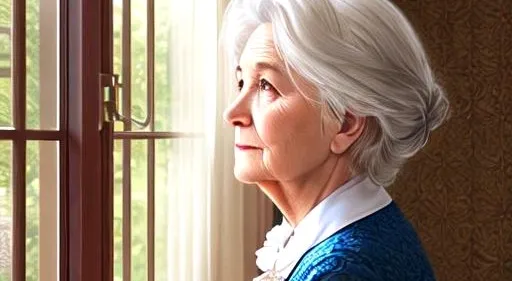Mamaw
April 9, 2017
The head of the bed was raised slightly and the foot of the bed was eased in the direction of the bay window. Hospice had placed the hospital bed in the living room so she would be in close proximity to those who were caring for her at all times. Her eyes rarely opened but, like a compass facing north, her face always found the warmth of the sun’s rays.
She was in her late 90’s when I married her grandson and came to know her. She held many titles: mother, sister, caretaker, daughter, grandmother – I knew her as Mamaw. She had been a department store worker in her working years and provided for her family her entire life. She was a woman of fierce faith and gentle hospitality. She loved deeply and laughed as often as she cried. She held close the traditions of family and the ties that bind us together. When I met her I could see none of that.
I had moved to Tennessee from Wisconsin where I had been working as a Nursing Assistant. I had been working for the elderly patrons of an assisted living facility. Most of the patrons had dementia of some sort, the most common was Alzheimer’s. Those who didn’t have cognitive decline had a terminal illness that threatened to take their lives before old age had its turn. These were the hospice patrons. The hospice practitioners preferred for the care staff to call it...
The head of the bed was raised slightly and the foot of the bed was eased in the direction of the bay window. Hospice had placed the hospital bed in the living room so she would be in close proximity to those who were caring for her at all times. Her eyes rarely opened but, like a compass facing north, her face always found the warmth of the sun’s rays.
She was in her late 90’s when I married her grandson and came to know her. She held many titles: mother, sister, caretaker, daughter, grandmother – I knew her as Mamaw. She had been a department store worker in her working years and provided for her family her entire life. She was a woman of fierce faith and gentle hospitality. She loved deeply and laughed as often as she cried. She held close the traditions of family and the ties that bind us together. When I met her I could see none of that.
I had moved to Tennessee from Wisconsin where I had been working as a Nursing Assistant. I had been working for the elderly patrons of an assisted living facility. Most of the patrons had dementia of some sort, the most common was Alzheimer’s. Those who didn’t have cognitive decline had a terminal illness that threatened to take their lives before old age had its turn. These were the hospice patrons. The hospice practitioners preferred for the care staff to call it...




